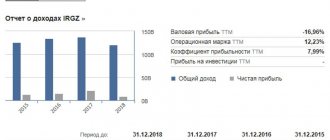Description of the book
Which is more profitable to invest money in: stocks or bonds? How to choose the best stocks that will become winners in the market? How to correctly read a company's balance sheet and financial statements in order to get maximum information for making a decision? What should you consider when choosing a mutual fund? How to beat the market? These and many other questions are discussed professionally and lucidly by the author, who managed to turn the story of his 13-year management of the fund into a witty and fascinating narrative. Aw...
Which is more profitable to invest money in: stocks or bonds? How to choose the best stocks that will become winners in the market? How to correctly read a company's balance sheet and financial statements in order to get maximum information for making a decision? What should you consider when choosing a mutual fund? How to beat the market? These and many other questions are discussed professionally and lucidly by the author, who managed to turn the story of his 13-year management of the fund into a witty and fascinating narrative. The author of the book, Peter Lynch, is a legend in the investment community. Under his leadership, Fidelity's Magellan mutual fund achieved outstanding results and became one of the largest in the United States, growing from $18 million in assets to $14 billion. This book is an invaluable experience of a successful portfolio manager, offered to the reader, as they say, first-hand. It will be of interest to both professionals: securities portfolio managers, investment fund managers, stock market specialists, and non-professionals: private investors and everyone who wants to preserve and increase their savings. The book “Replay Wall Street” by authors Peter Lynch, John Rothchild was rated by Book Guide visitors, and its reader rating was 8.20 out of 10. For free viewing, the following are provided: abstract, publication, reviews, as well as files for downloading.
- Views:
333 - Reviews:
0
Publication information
- Translators: not specified
- Series: not specified
- ISBN (EAN): 978-5-9614-0784-6
- Languages: Russian
- Age limit: not specified
- Year of writing: 2008
There are no citations added to this book.
This book has not yet been added to collections
NO CHARACTERS ADDED TO THIS BOOK
NO TESTS ADDED TO THIS BOOK
THE BOOK WAS NOT MENTIONED IN THE BLOGS
Rich Dad, Poor Dad Robert Kiyosaki is convinced that our children do not receive the necessary financial knowledge in school and then spend their entire lives working for money, instead of making money work for themselves. He invites the reader to take a fresh look at this serious issue and teach children about money before they face financial difficulties. For a wide range of readers.
Think and Grow Rich This book has helped millions of people get rich. For more than 80 years, Think and Grow Rich has been considered the world's most respected textbook on achieving success, overcoming challenges and increasing vitality. In it, the author relies on the statement: “Poverty is a state of mind. Success comes to those who think in terms of success.” Napoleon Hill made this conclusion after conducting more than 500 interviews with the most...
The Richest Man in Babylon The author of this book is confident: in order to fulfill all your plans and desires, you must first of all achieve success in money matters, using the principles of personal finance management set forth in its pages. This popular and fascinating bestseller gives an understanding of the financial problems that haunt a person throughout his life and suggests the right solution to them. The book teaches how to make money...
45 manager tattoos. Rules of the Russian leader The titles of the chapters of this book are tattoos. This is a set of principles and rules, tested by many years of practice of a successful manager, his everyday and organizational experience. These are simple and vivid stories about how and why you need to do business if you want to succeed. Behind each of these chapters there are meaningful actions, someone’s pain, torment, joy, successful and unsuccessful experiences, layoffs and leadership, and most importantly - n...
To hell with all of it! Take it and do it What is this book about? Richard Branson is a legendary British entrepreneur, one of the richest people on the planet, who founded the Virgin Corporation, which today unites under its brand almost 400 companies in a variety of fields - from publishing and air travel to space and underwater tourism. Branson is a bright, unconventional personality. His credo is to take everything from life. This means...
“Never eat alone” and other rules of networking Connections are everything! For a long time in Europe and America, one of the main skills, in particular for an entrepreneur and manager, has been considered networking - the ability to openly and sincerely communicate with a wide variety of people, building a network of useful acquaintances. The author of this book, who has collected in his notebook more than five thousand contacts of the powers that be, shares the secrets of building a wide network of mutually beneficial connections in...
Time Drive This is the most practical book on organizing a business person's time.
Rework. Business without prejudice This book became a bestseller in America immediately after its release. And no wonder - it overturns established ideas about the “correct” way of doing business, which in fact often interfere with success. The authors, two successful entrepreneurs, tell you how to start or improve your existing business, or rather, your views on it, in order to gain an unprecedented degree of freedom and get much more pain...
How to get things in order This is the audio version of the book “How to get things in order. The Art of Stress-Free Productivity”, which has become a cult favorite for many people. The technique, originally called Getting Things Done (GTD), even though it has not yet been translated into Russian, has helped thousands of people increase the efficiency of their work. The GTD system allows you to understand your workflow and achieve stress-free productivity. You know...
Number 1. How to become the best at what you do A book about how to become number one in your chosen field of activity. Goal, development, work for results, promotion, image – there are no unimportant details here. By filling out all the items in the attached questionnaires, you will create your own map of the path to success.
Feedback
If you have any questions about the operation of the site, write to us!
Let me know if you find an error on the page!
What is this book about
The book details Peter Lynch's investment techniques, presented in chapters such as preparing to invest, choosing stocks and building a portfolio. You will learn about investing mistakes and stereotypes, which stocks are worth buying and when to sell them, what key indicators to pay attention to when analyzing stocks, and how to determine whether a stock is overvalued or not.
The book is divided into 3 parts: preparing to invest, choosing winners and long-term perspective.
Part I. Getting ready to invest.
Before you start investing in stocks, ask yourself the following questions:
- Do you need to invest in stocks?
- What result are you hoping for?
- For how long are you going to invest the money?
- How will you respond to unexpected large price drops?
Indecision and uncertainty are the main enemies of a novice investor in the stock market. When you have a clear goal and action plan, you will be less likely to panic when stock prices plummet and sell at the worst possible time.
Price movements in the market are unpredictable, so no one can accurately predict when a crisis will occur. To succeed in investing and not worry about falling prices, buy shares of companies with good financial performance.
Over the long term, stock owners outperform bond owners. When you buy a stock, you become a shareholder, and when you buy a bond, you become a creditor and can expect only the return of the principal and a small amount of interest. But shareholders have more risks, because... the company may leave the market or go bankrupt.
Before investing in stocks, take the Mirror Test and answer the following questions:
- Do I own my own home?
Before you start investing, take care of your own home; also, unlike stocks, real estate will not go bankrupt, its prices will not fall so sharply, and this is a good way to protect against inflation.
- Do I need money?
If you are planning a large purchase in the near future (2-3 years) (a car, a new house, paying for university education), then it is not recommended to invest your savings even in the most stable stocks. For investments, plan for a period of more than 10 years and use only money the loss of which will not greatly affect your well-being, for example, 10-20% of your monthly salary.
- Do I have the qualities needed to be a successful stock investor?
For a successful investor, the following qualities are important: patience, resistance to stress, the ability to make independent decisions, a thirst for research, flexibility and lack of greed.
Part II. We choose the winners.
To find a 10x (a stock that will grow 10 times), you need to focus your attention on those stocks that large funds have not yet paid attention to. For example, the article MSCI Russia Index: what it includes and why it is interesting tells about the stocks included in the MSCI Russia index, which is used by large investment funds. So, to be included in this index, a company’s capitalization must be at least $1.4 billion, and only after that will major players notice it. Those. you need to invest in a company that can grow in the future and become included in the MSCI Russia index.
To do this, keep an eye on new breakthrough technologies in the industry in which you work and are well versed. For example, if you work in medicine, you will be one of the first to know about a new drug.
Avoid buying popular stocks in popular industries that everyone buys due to the herd effect. Such stocks can rise quickly, but they also fall quickly. Beware of companies that grow on rumors that they are about to solve some global problem.
Never buy a stock without researching the company. Before you buy a stock, take the time to study its business, understand how the company makes money, and what factors influence its earnings. An ideal company is engaged in simple and understandable activities. But at the same time, look for companies that operate in a market where it is difficult for a new player to break through.
Pay attention to the company's earnings and P/E ratio. You can read more about this indicator in the article P/E multiplier. This indicator helps to understand whether shares are overvalued or undervalued relative to the company’s potential profit. The P/E ratio is useful for the initial selection of stocks, but it is not worth stopping your research on.
When researching a company, pay attention to factors that affect profit: cutting costs, expanding the business, or getting rid of unprofitable activities.
Also in the financial statements, look at the number of shares in circulation; if this number decreases from year to year, then companies buy back their shares from the market, which is a good sign for investment.
See if the stock pays a dividend. You can read more about dividends in the article Dividend stocks for beginning investors. If the company pays dividends, then you will receive additional income from owning shares. During market declines, investors tend to buy stocks that consistently pay dividends because... When the price of a stock decreases, its dividend yield increases.
Look for companies that are not heavily dependent on capital expenditures and have a lot of free cash flow.
Part III. Long-term perspective
After choosing stocks, proceed to creating an investment portfolio. Don't put all your money into one stock, but at the same time, don't add little-known companies to your portfolio just for the sake of diversification and variety. Monitor stocks and adjust your portfolio based on changing fundamentals, but avoid frequent buying and selling of stocks because in this case, you lose part of the profit on broker commissions.
This part also discusses popular misconceptions among novice investors regarding the stock market:
- A stock that has fallen significantly cannot fall further.
- You can always tell when a stock's price has bottomed.
- A stock that has gone up a lot is unlikely to go up much more.
- After a fall, the stock will still rise.
- Conservative stocks do not have large price fluctuations.
- The stock is growing, which means I did the right thing, and vice versa, if the stock is falling, then I made a mistake in my choice.
- I can earn more if I speculate.
About the book “Win on Wall Street. Peter Lynch"
The book “Win on Wall Street” in a 10-minute read format: reviews of the best books, only the most important and useful.
Peter Lynch today is busy distributing money to various organizations from the Lynch Foundation he created. Under his leadership, the unknown mutual investment fund Fidelity Magellan Fund increased its assets from 20 million to 14 billion dollars, showing the best investment results in the world.
QUOTE: “It will be better if you define your goals and indicate your attitude in advance, since a lack of determination and conviction will turn you into a potential market victim who, having given up everything and losing hope, will begin to sell at a loss at the worst moment of the market situation.” .
On our website you can download the book “Win on Wall Street. Peter Lynch” Butler-Bowdon Volume for free and without registration in fb2, rtf, epub, pdf, txt format, read the book online or buy the book in the online store.
Peter Lynch: who is he and why is he famous?
If there is one legendary investor who not only beat the market, but destroyed it, it is Peter Lynch. Lynch managed the Magellan Fidelity Fund in the United States for thirteen years, from '77 to '90. During this period, it beat the US stock market index S&P 500 for eleven years. His average annual income during this period was a staggering twenty-nine percent.
This means that every US dollar invested in his fund in the year seventy-seven had grown to twenty-seven US dollars by the year ninety.
Luckily for us, Lynch has distilled his secrets into two great books that every investor should own and read several times—Beating Wall Street and Fighting the Tide.
Quotes from Peter Lynch on investing in stocks
- “Your advantage as an investor is not that you follow the advice of Wall Street experts. And in what you already have. You can outperform the experts if you take advantage of your advantage by investing in companies or industries that you understand."
- “Behind every share is a company. Find out what she's doing."
- “If you're willing to invest in a company, you need to be able to explain why you did it in simple language that even a fifth grader could understand, and quickly enough that he won't get bored.”
- “If you don't research any companies, you'll have as much success buying stocks as you would playing poker without looking at your cards.”
- “There's no shame in losing money in stocks. Everyone does it. The most shameful thing is to hold on to a stock, or worse, buy more of it, when fundamentals deteriorate.”
- “Often there is no correlation between the success of a company's operations and the success of its stock over the course of a few months or even a few years. Over the long term, there is a 100% correlation between the success of a company and the success of its stock. This inequality is the key to making money; patience and owning successful companies pays off.”
- “Stock picking cannot be reduced to a simple formula or recipe that will guarantee success if strictly followed.”
Peter Lynch's book Outplay Wall Street
In this book, Peter Lynch, one of the most successful investors of all time, explains how to use what you already know to make money in the markets. You'll understand why the smart money isn't so smart and why you may be a better stock picker than the pros, how to follow your hunches and back them up with facts, how to ignore economic reports and choose the right time to buy and sell, and how to determine when what types of shares are right for you.
Peter Lynch "Fighting the Tide"
This book presents the investment wisdom of one of the world's most successful mutual fund managers. Peter Lynch's investment strategy has made him popular among investors, big and small. An investor believes that an important key to investing is knowing that stocks are not mere pieces of paper. Each stock has a company associated with it, and a reason why corporations and their stocks perform the way they do.
Peter Lynch shares with you techniques on how to become a pro at the company and how you can build an investment portfolio that will generate profits based on your own insights as well as simple research you can do yourself.
Final comments
The book is written in easy, understandable and simple language, seasoned with a dose of humor. The author avoids complex phrases with highly specialized terms and does not use cumbersome formulas and calculations. Therefore, the book is perfect for novice investors and introduces the basics of financial literacy.
Of course, the article does not cover everything, but only a small and insignificant part of what is described in the book. Therefore, for a complete understanding, it is still better to read the entire book yourself, for example, on liters.










